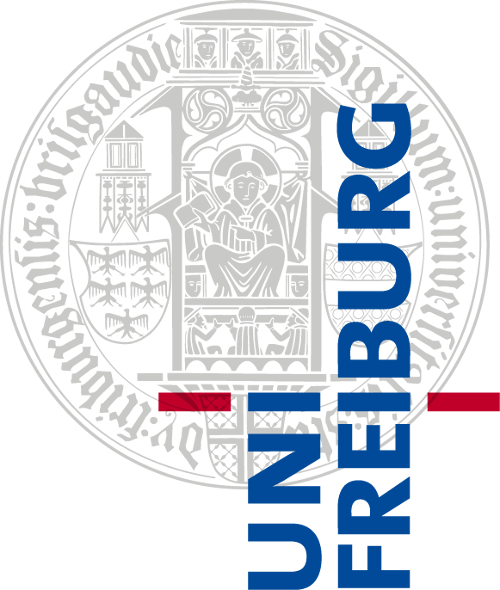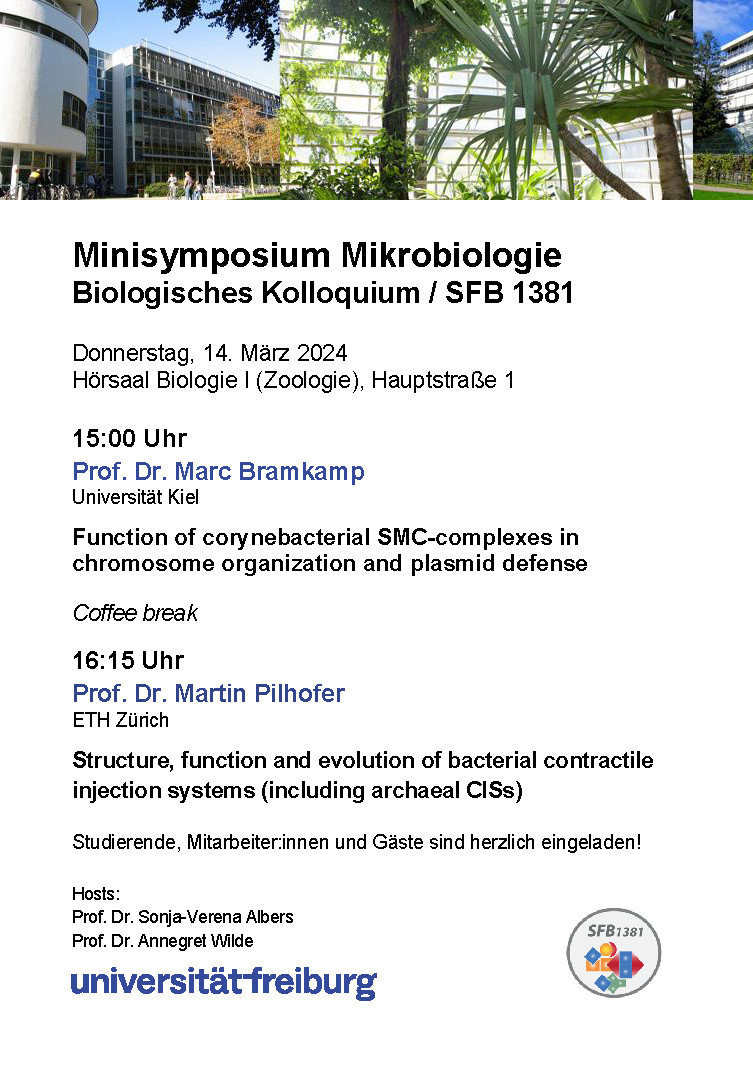
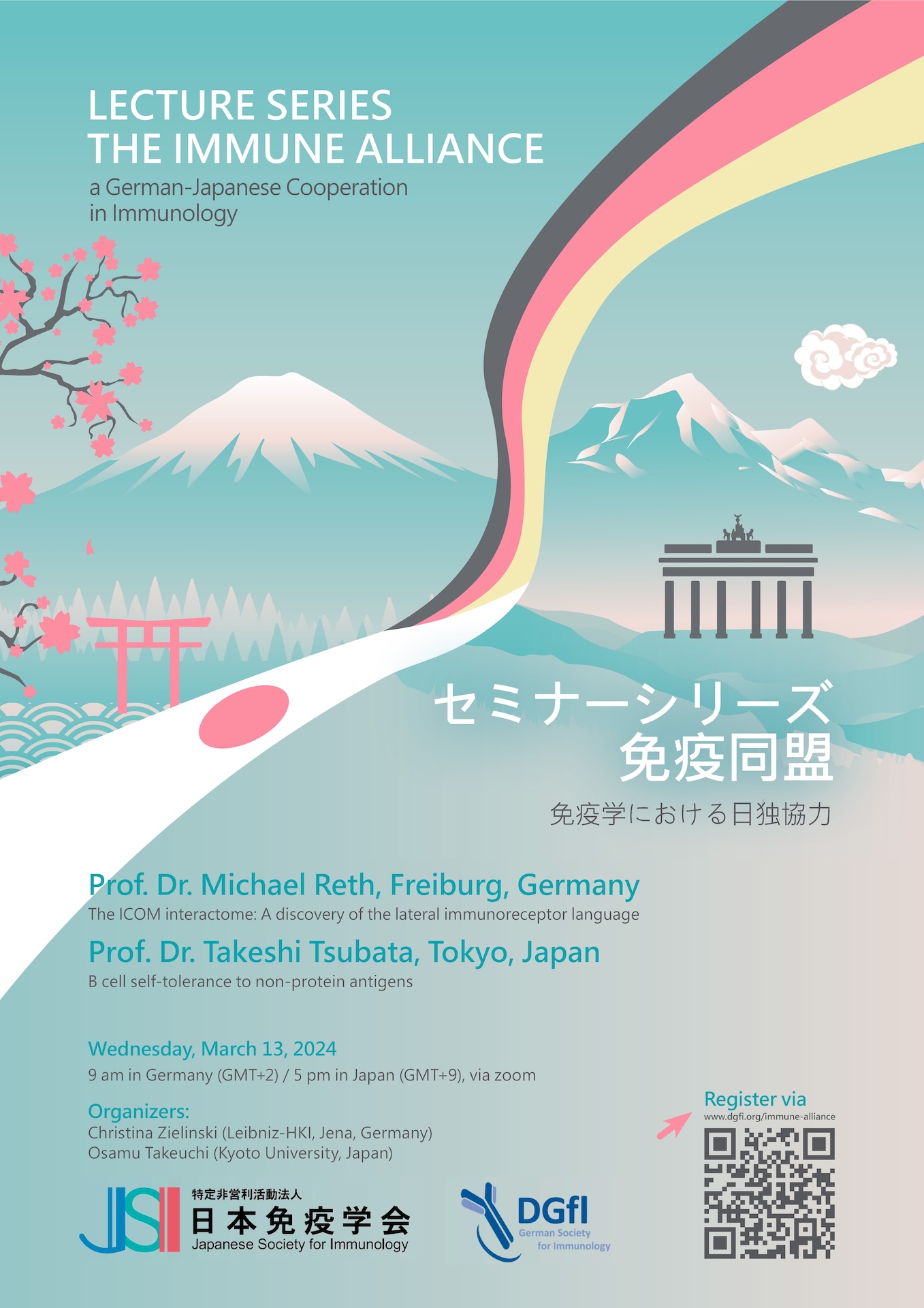
 Professor Kurt Hilse verstarb bereits am 13. Dezember im Alter von 95 Jahren.
Professor Kurt Hilse verstarb bereits am 13. Dezember im Alter von 95 Jahren.
Kurt Hilse wurde 1928 in Waldenburg geboren. Aufgrund der Kriegswirren nahm er erst 1942 sein Studium der Chemie an der Ludwig-Maximilians-Universität München auf. Zur Diplom- und Doktorarbeit ging er an das Max-Planck-Institut für Biochemie unter Adolf Butenandt, wo er in der Arbeitsgruppe Braunitzer maßgeblich an der Sequenzierung des Humanhämoglobins beteiligt war. Nach seiner Promotion arbeitete er ab 1958 als postdoctoral fellow am Oak Ridge Laboratory in Tennessee, USA. Als Molekularbiologe der ersten Stunde forschte er am genetischen Code und half bei dessen Aufklärung. Seine Forschung auf dem Gebiet der Globin-Allele und der Hämoglobinsynthese führten ihn schließlich 1969 nach Freiburg an das frisch gegründete Institut für Biologie III. Nach Habilitation 1972 und Ernennung zum Professor unserer Fakultät galt sein Interesse den Regulationsmechanismen der Proteinbiosynthese. Bis zu seiner Emeritierung im April 1993 war er einer der prägenden Forscher am Institut.
In stiller Trauer,
Das Kollegium des Instituts für Biologie 3
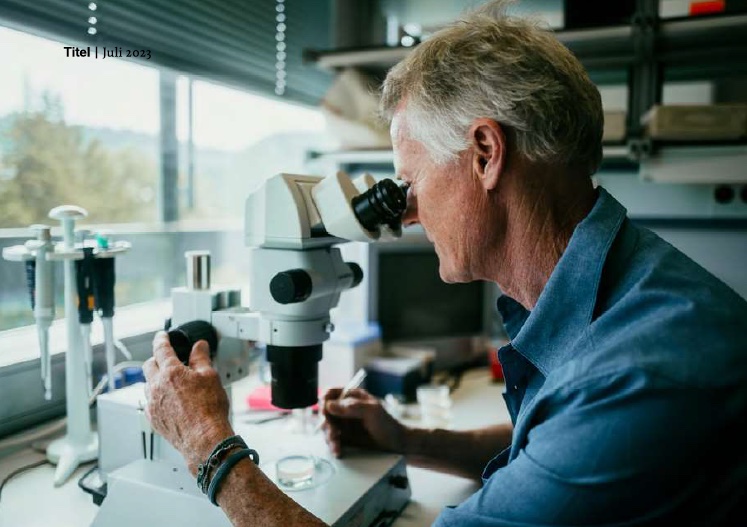
(c) Netzwerk Südbaden
The work of the Lab of Ralf Baumeister was recently the topic in two different articles in local newspapers:
First, Kathrin Ermert from Netzwerk Südbaden looked into the century old question of why organisms age. She visited the laboratory for this purpose and had a conversation with Ralf Baumeister. The article can be downloaded from our Homepage. We thank Netzwerk Südbaden allowing us to do so.
Link to the article on our BioCloud
Second, Badische Zeitung reported about a recent work of Wenjing Qi and other people from our faculty on heat adaptation of organisms. The article can be found here.
Artikel in der badischen Zeitung
They are referring to an original announcement from the university, which can be found at the following link.
Original article from the University
Original publication:
Xu, F, Li, R., von Gromoff, E. D., Drepper, F., Knapp, B., Warscheid, B., Baumeister, R., Qi, W.: Reprogramming of the transcriptome after heat stress mediates heat hormesis in Caenorhabditis elegans, in: Nature Communications 14 (2023). DOI: https://doi.org/10.1038/s41467-023-39882-8
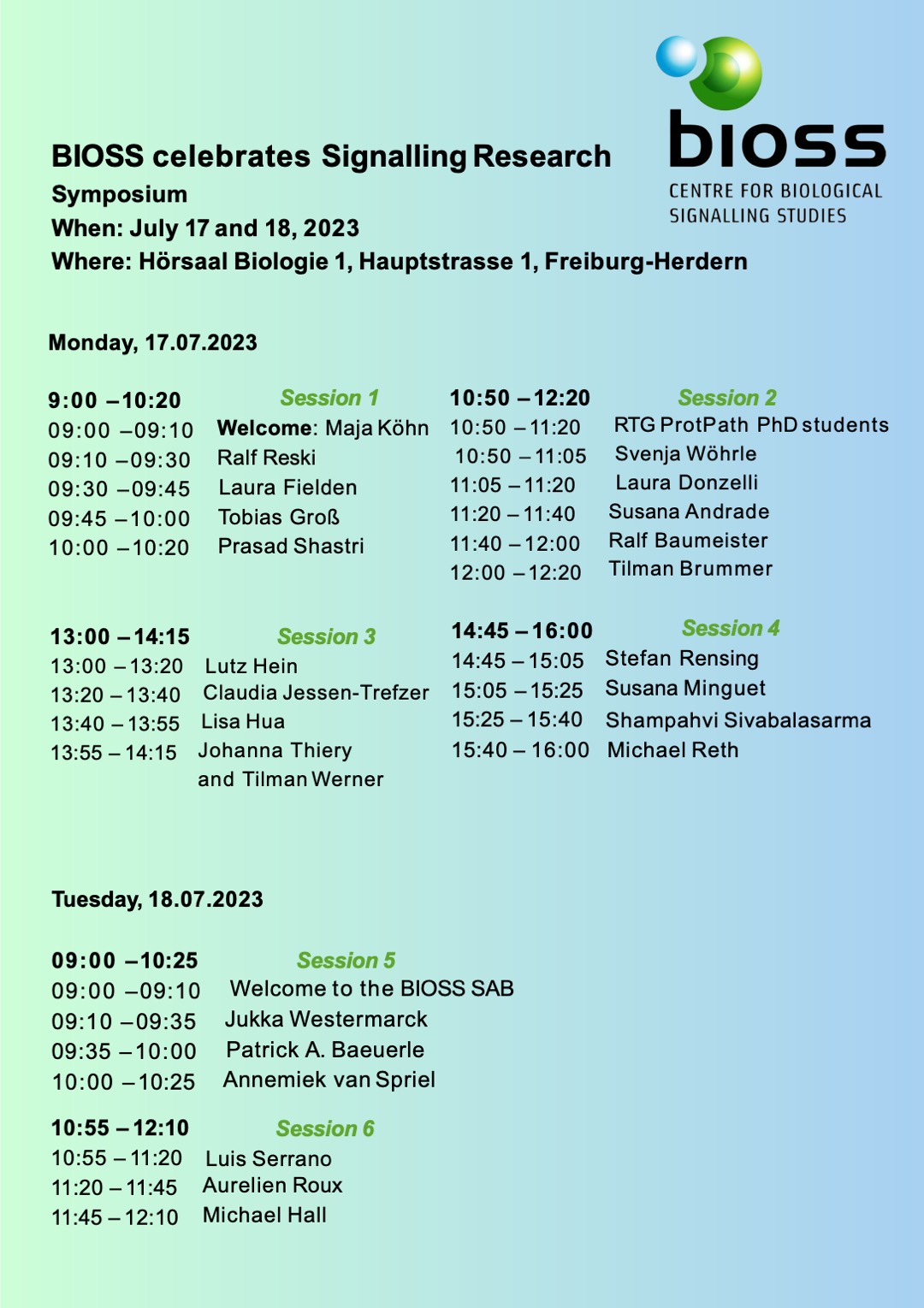
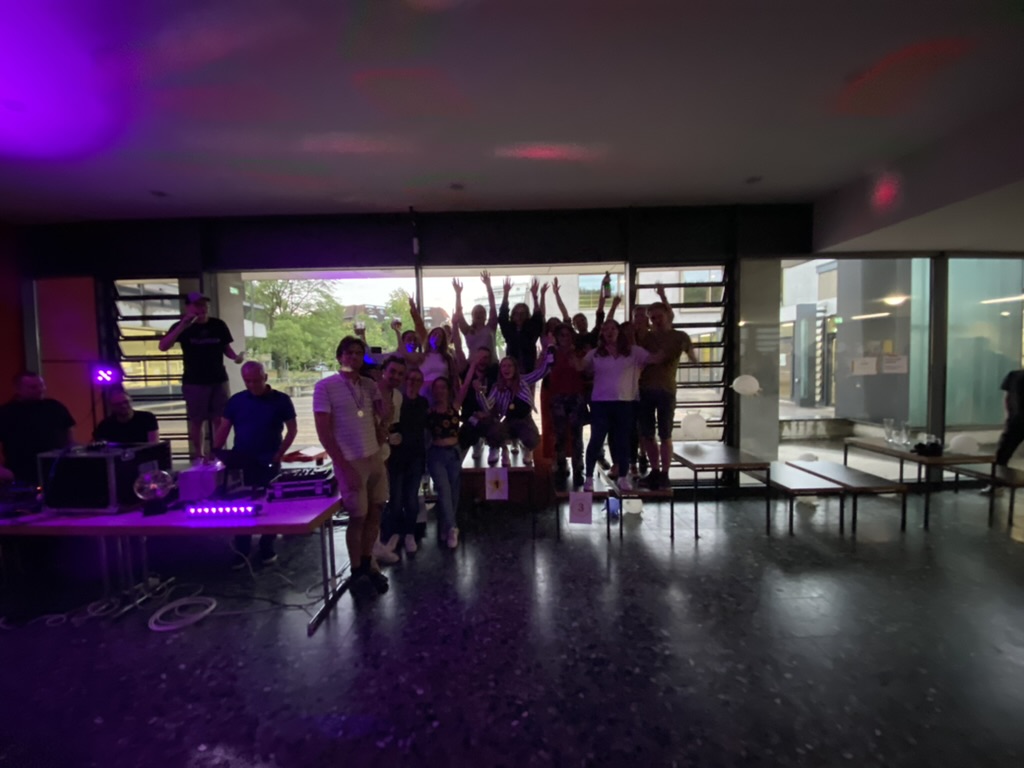 Liebe Fakultätsmitglieder der Biologie, *(English version below)*
Liebe Fakultätsmitglieder der Biologie, *(English version below)*
Wir freuen uns darauf, euch alle im nächsten Jahr wiederzusehen und sind dankbar über jede Rückmeldung oder Anregungen, die wir gerne nächstes Jahr berücksichtigen werden.
Die Organisatoren,
Sjon Hartman, Stefan Kircher, Pablo Rios and Karsten Voigt
*————–English version*
Dear members of the Faculty of Biology,
We would like to thank all of you for coming and enjoying the Faculty Day 2023! We hope that you had a great time as we, the organizers, had.
We want to thank especially all the people from the Bio-I-II-III institutes who contributed with their time an effort during the past weeks (workshops, media kitchen, secretaries and facility managers), as well as the DJs and all the volunteers and HiWis that helped us during the faculty day. Without you the faculty day could not have successfully happened.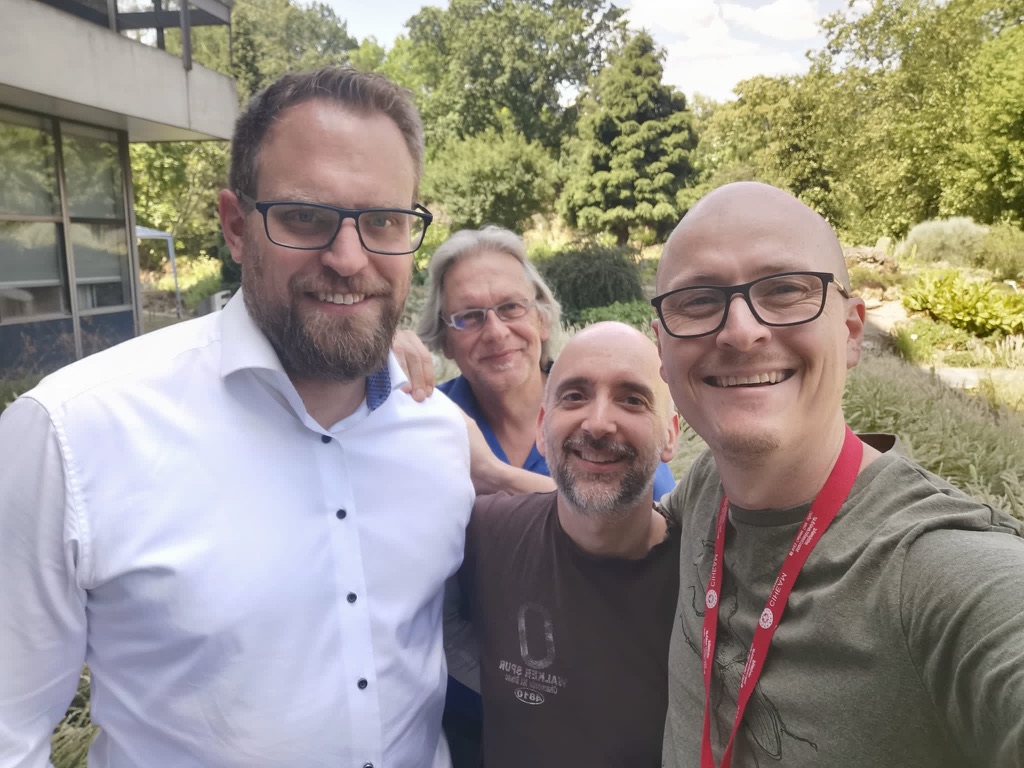
We are looking forward to see you all next year and we are happy to receive any feedback or suggestions that you might have, that can be taken into account for next year.
The organizers,
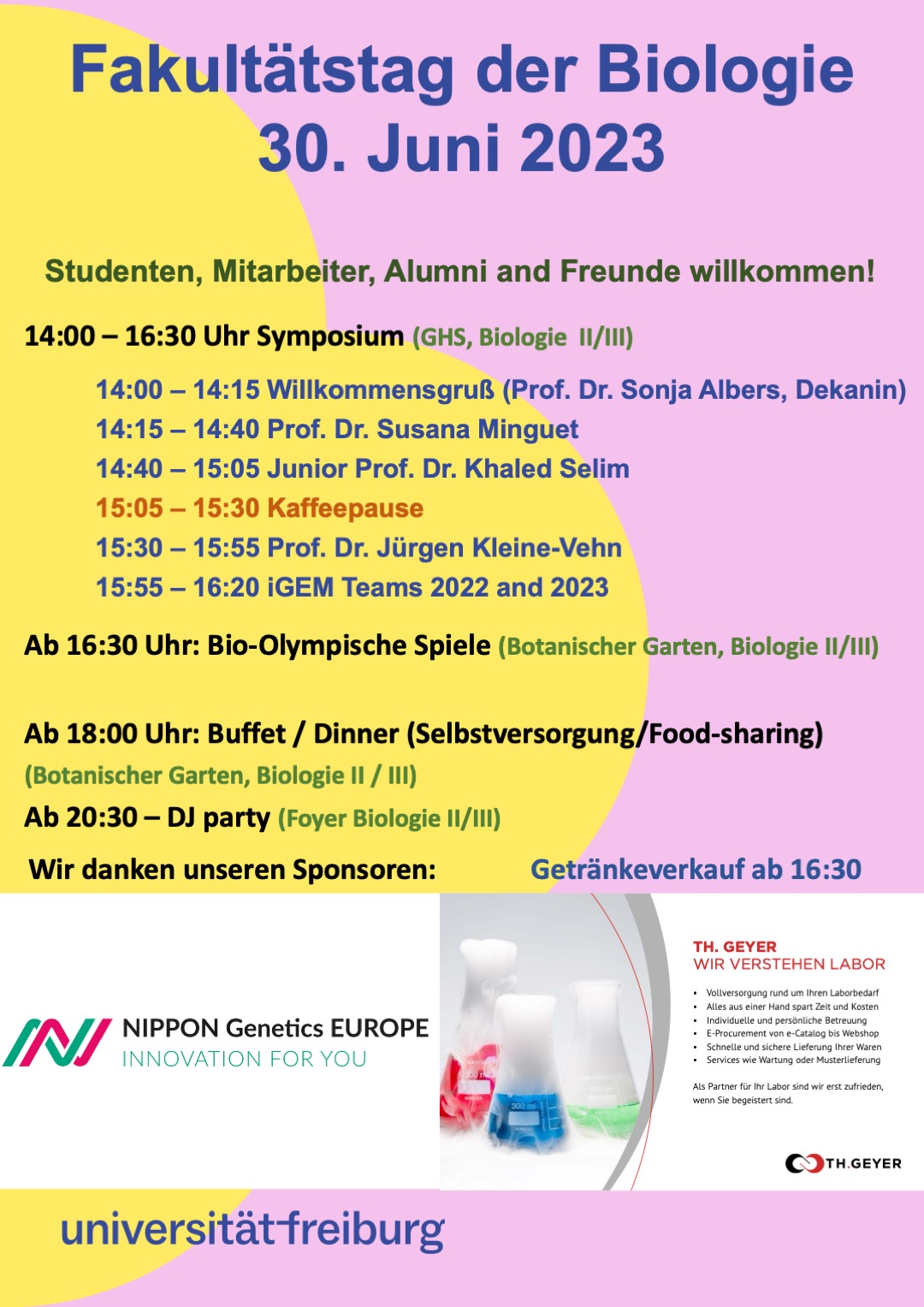
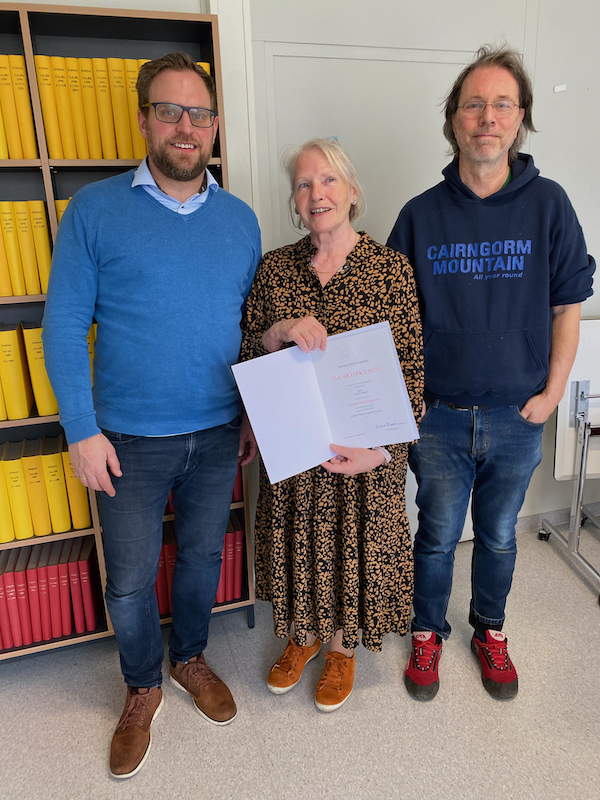 Das Institut für Biologie 3 an der Fakultät für Biologie der Universität Freiburg gratuliert Marita Hermann herzlich zu ihrem 40-jährigen Dienstjubiläum. Frau Hermann ist seit 1980 als technische Assistentin am Institut tätig und hat in dieser Zeit nicht nur unschätzbare Arbeit in verschiedenen Laboren geleistet, sondern auch zahlreiche bedeutende Projekte unterstützt.
Das Institut für Biologie 3 an der Fakultät für Biologie der Universität Freiburg gratuliert Marita Hermann herzlich zu ihrem 40-jährigen Dienstjubiläum. Frau Hermann ist seit 1980 als technische Assistentin am Institut tätig und hat in dieser Zeit nicht nur unschätzbare Arbeit in verschiedenen Laboren geleistet, sondern auch zahlreiche bedeutende Projekte unterstützt.
Sie hat sich in ihren Dienstjahren ein umfangreiches Fachwissen angeeignet und zeichnet sich durch stets zuverlässige Arbeit und große Kollegialität aus. Insbesondere ihr Engagement und ihre Hingabe zu ihrer Arbeit haben dazu beigetragen, dass sie als unverzichtbarer Teil des Instituts, insbesondere der AG Laux, angesehen wird. Frau Hermann hat sich auch als wertvolle Mentorin für viele Studenten und junge Forscher erwiesen, die von ihrem Wissen und ihrer Erfahrung profitiert haben. Ihr Beitrag zur Ausbildung zukünftiger Wissenschaftler ist von unschätzbarem Wert.
Wir sind sehr dankbar für Frau Hermanns Engagement und Loyalität in all den Jahren und wünschen ihr alles Gute. Wir hoffen, dass sie uns noch einige Jahre als Arbeitskraft erhalten bleibt.
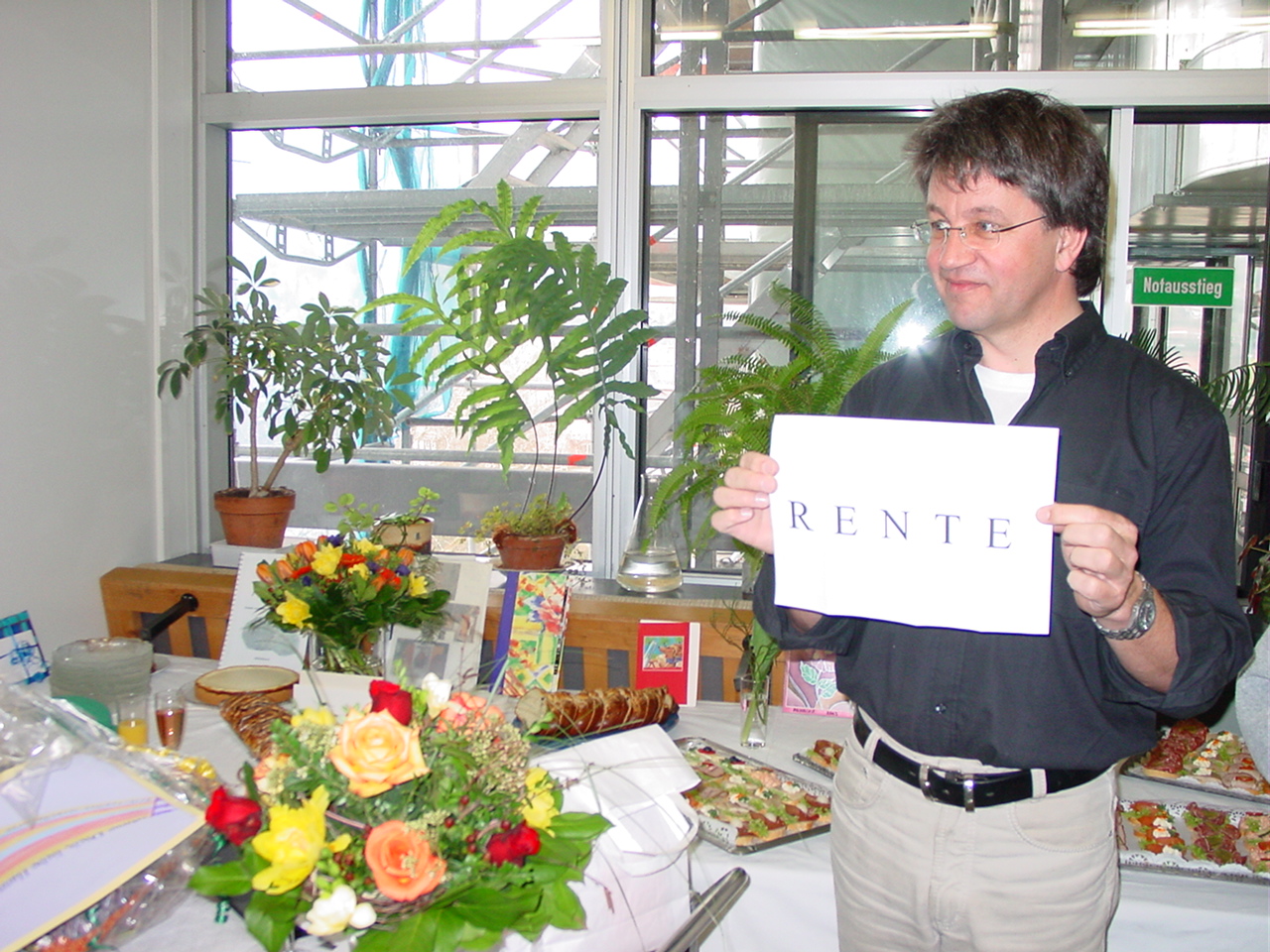 Dr. Reinhard Gross, langjähriger akademischer Leiter des Instituts für Biologie 3 ging zum Ende des Monats Juli in seinen wohlverdienten Ruhestand.
Dr. Reinhard Gross, langjähriger akademischer Leiter des Instituts für Biologie 3 ging zum Ende des Monats Juli in seinen wohlverdienten Ruhestand.
Nachdem er bereits seine Doktorarbeit an der Fakultät für Biologie angefertigt hatte, wurde Reinhard Gross nach einem längeren Intermezzo in der Industrie im Jahr 1995 zum akademischen Leiter des Instituts berufen. Diese Funktion bekleidete er 27 Jahre lang und hat in dieser Zeit unter anderem 16 Berufungen von Professor*Innen an das Institut begleitet und die Komplett-Sanierung des Hauptgebäudes bei gleichzeitiger Aufrechterhaltung des Betriebs organisiert. Reinhard Gross hat in den letzten Jahrzehnten das Institut maßgeblich mitgestaltet und mit größtem persönlichem Engagement die akademischen Belange des Instituts geleitet.
Deine Mitarbeiter*Innen und Kolleg*Innen wünschen Dir, lieber Reinhard, alles Gute für Deinen neuen Lebensabschnitt. Deine Persönlichkeit, Deine Erfahrung, Dein Einfallsreichtum, Deine Kompetenz, Deine Kollegialität und Deine Expertise werden uns sehr fehlen.
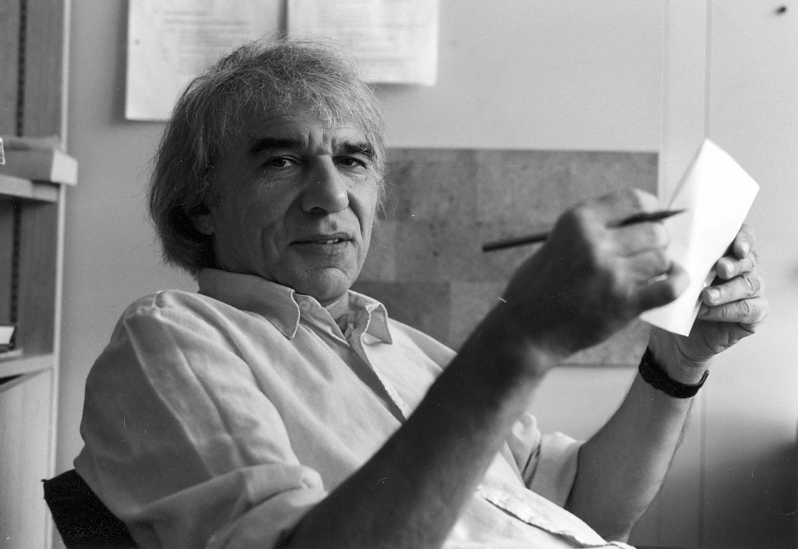
Professor Rudolf “Rudi” Hausmann, Mitbegründer des Instituts für Biologie 3, verstarb am letzten Freitag im Alter von 92 Jahren.
Rudi Hausmann wurde am 25. August 1929 in Schafisheim in der Schweiz geboren. Seine Kindheit und Jugend verbrachte er in Zürich. Anschließend studierte er Medizin an der Universidade Federal do Rio de Janeiro. Nach dem Abschluss des Studiums und Erlangens des Arztdiploms 1955 arbeitete er von 1956 bis 1958 als Assistent am Institut für Genetik der Universität Köln. Nach anschließender Forschungs- und Lehrtätigkeit am Institut für Mikrobiologie der Universität Rio de Janeiro wechselte er 1964 als Post-doctoral Fellow an das Albert Einstein College of Medicine, New York und war von 1965 bis 1967 am Southwest Center of Advanced Studies in Dallas tätig. 1968 kam er an das neu gegründete Institut für Biologie III der Albert-Ludwigs-Universität Freiburg und nahm 1978 den Ruf auf die Professur für Genetik an der Fakultät für Biologie an. Schwerpunkt seiner Forschung war die Genetik der Bakteriophagen (speziell des Bakteriophagen T7), er beschäftigte sich aber auch intensiv mit der Geschichte der Genetik und Molekularbiologie. Vielen Studierenden ist er nicht nur als engagierter Lehrender, sondern auch als Koautor von Carsten Breschs Werk “Klassische und molekulare Genetik” bekannt, das lange Jahre auch international als Standardlehrbuch der Genetik galt. Auch als emeritierter Professor war Rudi Hausmann oftmals im Institut anzutreffen und suchte das fachliche Gespräch mit anderen Forschenden und Mitarbeitenden.
Rudi Hausmann war prägender Gestalter gerade der frühen Jahre des Instituts für Biologie 3 und ist für immer mit der Geschichte des Instituts verbunden.
In stiller Trauer,
Das Kollegium des Instituts für Biologie 3
Institute of Biology 3
University of Freiburg
Schänzlestraße 1
79104 Freiburg, Germany
Director
Prof. Dr. Wolfgang HessTel.: 0761-203-2796
Fax: 0761-203-2601
e-Mail: wolfgang.hess@biologie.uni-freiburg.de
Vice-Director
Prof. Dr. Wolfgang SchamelTel.: 0761-203-67511
e-Mail: wolfgang.schamel@biologie.uni-freiburg.de
Administration
Academic Director
Karsten VoigtTel.: 0761-203-6975
e-Mail: voigt@bio.uni-freiburg.de
Office
Diane KaltenbachTel.: 0761-203-2741
e-Mail: kaltenbach@biologie.uni-freiburg.de
Karin Laubenberger
Tel.: 0761-203-2742
e-Mail: karin.laubenberger@biologie.uni-freiburg.de
Marina Heitzmann
Tel.: 0761-203-2731
e-Mail: heitzmann@biologie.uni-freiburg.de
IT-Office
Edith AmsÉric Antoine
Tel.: 0761-203-2759
e-Mail: it.bio@biologie.uni-freiburg.de
Research groups
Prof. Dr. Ralf Baumeister
Prof. Dr. Ilka Diester
Jun. Prof. Dr. Sjon Hartman
Prof. Dr. Wolfgang R. Hess
Prof. Dr. Maja Köhn
Prof. Dr. Thomas Laux
Prof. Dr. Christian Leibold
Prof. Dr. Björn Lillemeier
Prof. Dr. Carsten Mehring
Prof. Dr. Susana Minguet GarcÍa
Prof. Dr. Michael Reth
Prof. Dr. Stefan Rotter
Prof. Dr. Wolfgang Schamel
Dr. Ekkehard Schulze
Dr. Claudia Steglich
Prof. Dr. Annegret Wilde
Retired and former members
Prof. Dr. Ad Aertsen
Prof. Dr. C. Bresch
Dr. P. Emschermann
Dr. R. Gross
Prof. Dr. Günter Feix
Prof. Dr. Karl-Friedrich Fischbach
Prof. Dr. R. Hausmann
Prof. Dr. R. Hertel
Prof. Dr. K. Hilse
Dr. Gabor Igloi
Dr. W. Michalke
Dr. M. Neumann
Prof. Dr. Edward Pearce
Prof. Dr. Bodo Rak
Prof. Dr. Albrecht E. Sippel

